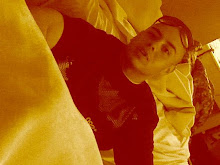
When I was young I remember my father filling my head full of ideas about what being Tongan meant. He would tell me things like "being Tongan means being the toughest, being the most furious, being able to win a fight." Then he would show us his rebellious side by daring others to try his strength, it didn't matter who, he would call on police men, body builders, anyone he thought worthy. I also remember the lavish stories he would tell us about living on the islands coming from the small
Being strong was my earliest understanding of what being a Pacific Islander was and as I would grow I would learn that I, like the Pacific Islanders, stand for much more then strength, then coconuts, then hula dancers, more then a nice smile a bellowing voice and faith in the church. Fore all the rhetoric I ever heard from non-Polynesians and even internalized messages from Polynesians was that there was very few ways for a Polynesian to make it in this world. You either made it playing football, being faithful, or marrying a white person (my half blood status is proof of this not being true.) As most observations outside in will recognize "good" or noteworthy Pacific Islanders leading such lives. There is always the "others" the Polynesians like myself that didn't or wasn't able to fit that mold. This is the understanding of Pacific Islanders I understand best because this is the direction my life has sent me.
What does the "others" mean? The "others" always held a dualism to me, being defined one way by myself and another by the outside. To me the "others" was me, a self actualizing individual, like my mother, like my brother, like my sisters and cousins. I considered us the average Joes of our culture. But the first time one of my cousins was shot and killed, I was forced into a reality that didn't recognize us as being human or human of the same level as all the other average Joes. I still remember the call, the human voice dying on the line, the cries of loved ones, and the loss of ones self when confronted with such numbing information. I also remember beyond just the emotional hurt I felt of having my cousin killed I now had the evening news, the morning paper, the community we both lived in calling my cousin a gangster, a low-life, a nuisance to society. It was like they said he deserved to die! My cousin, who the weekend before you may have caught at church, at work, or playing with his daughters, was now reduced to derogatory terms, that spit upon his very existence. Because it couldn't possibly be society's fault that it happened, it couldn't possibly be that he was just like them! I hated the way he was painted but it helped me understand the "others" more then any other situation possibly could.
My cousins death wasn't the last time I would see the rhetoric of a Pacific islander being slain then for the media to construct the death around gang violence. But it did indeed help me foster the notion that to the outside community I could never represent an equal. I began thinking critically of what my community represented underneath the lies. I questioned why we are construed as gangsters, thugs, low-lives and I began to think the reason we was marginalized was that we stood against something. They (palangi's) have something to fear about what we represent and where we come from.
The others set off a beckon of hope that maybe without knowing they are the resistance to imperialistic society. We was forced into the shadows and marginalized in our daily lives, But somehow maybe we know we represent something more than our current situation. I know Pacific Islanders who are brought into "western" society have to choose from a young age what exactly Pacific Islanders are. I feel like we are immediately limited in selection and therefore pushed into choices before we even had the notion that we were making a choice. I understand that all Pacific Islanders aren't considered equals and they tend to either emphasize those characteristics that are sought in them or rebel against the notion of being accepted. I know we believe we are strong, but I'm not sure if we have the strength to rally together and oppose that which has been sent our way.

1 comment:
This is a great spill! I now have identified myself, all through childhood and even now I get sighed upon because I never gave into that we are this race so we go by this book. You truly are insperational.
Post a Comment